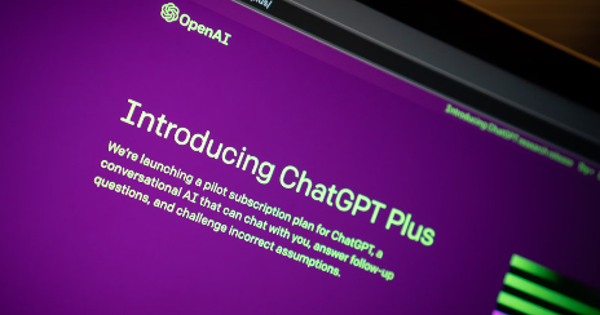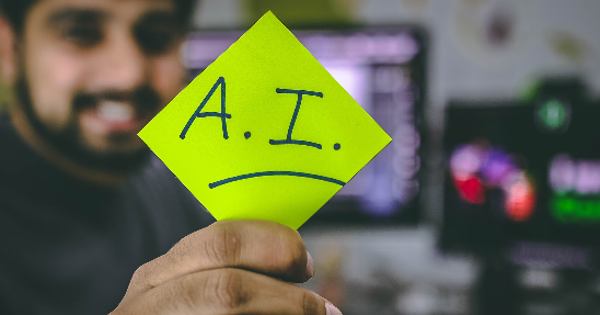5/22/2024
In this article, we'll dive into the impact of Artificial Intelligence (AI) on Search Engine Optimization (SEO). By the end of this journey, you'll understand how AI can improve your online presence and help you reach a wider audience without the need for specific tool mentions.
Key Takeaways
- AI's Impact on SEO
- Improved Keyword Research
- Content Creation and Optimization
- On-page SEO Analysis
- Natural Language Processing (NLP)
- Personalized Search Results
- Real-Life Examples of AI in SEO
- Ethical Considerations
- Conclusion
Understanding the AI Advantage

a computer generated image of a network and a laptop - Unsplash - Growtika
Let's begin by understanding how AI is changing the SEO and empowering businesses and individuals to succeed online.
Improved Keyword Research
Keywords are the cornerstone of SEO. By analyzing vast amounts of data, AI can identify relevant keywords and predict emerging trends more effectively than traditional methods.
Content Creation and Optimization
Creating high-quality, optimized content is essential for ranking well in search engines. AI algorithms can analyze top-performing articles, understand user intent, and generate compelling content that resonates with your target audience.
On-page SEO Analysis

Seo Audit White Blocks on Brown Wooden Surface - Pexels - Pixabay
AI-driven tools can scan your website and identify areas for improvement regarding on-page SEO elements, such as meta tags, headings, and image alt text. This ensures your web pages are well-optimized for search engines.
Natural Language Processing (NLP)
NLP enables search engines to better understand the context and intent behind search queries. This results in more relevant search results, favoring websites with quality content.
Personalized Search Results

Search find view information data - Image by rawpixel.com on Freepik
AI algorithms can learn from user behavior and deliver personalized search results. This means that different users may see different results for the same search query, based on their preferences and past interactions.
The Power of AI in Real-Life Examples

A scrabble board with the letters a and i - Unsplash - Markus Winkler
Let's explore some real-life examples to showcase the true potential of AI in SEO:
Example 1: Personalized Recommendations
Platforms like Netflix and Amazon use AI to provide personalized recommendations to users based on their past behavior. This leads to a more engaging user experience and increased customer loyalty.
Example 2: Enhanced Search Results
Search engines like Google use AI algorithms, such as BERT, to better understand the context of search queries and deliver more accurate and relevant search results. This benefits users and businesses alike.
Example 3: Chatbots for Customer Support

a close up of a computer screen with a purple background - Unsplash - Jonathan Kemper
AI-powered chatbots offer instant support to website visitors, answering their queries and providing assistance 24/7. This improves customer satisfaction and reduces response times.
Ethical Considerations: The Human Touch

Woman looks with intention in front of yellow wall - Image by wayhomestudio on Freepik
As we embrace the power of AI in SEO, it's essential to remember the importance of human oversight and ethical considerations:
Transparency and Accountability
AI algorithms should be transparent in their decision-making process. Users have the right to know how their data is being used to improve search results.
Bias Mitigation
AI can inherit biases from the data it learns from. It's crucial to ensure that AI-driven SEO tools do not perpetuate discriminatory practices and provide equal opportunities for all websites.
Human Creativity and Insight

MacBook Pro near white open book - Unsplash - Nick Morrison
While AI can automate many SEO tasks, human creativity and insight remain invaluable. Content creation, in particular, should reflect the human touch and be driven by genuine value to users.
Conclusion
In conclusion, AI is reshaping the future of SEO, making it more efficient, data-driven, and user-centric. By adopting the AI, you can use the true potential of your website and reach a broader audience.
Remember, AI is a powerful ally, but it should complement human efforts, not replace them. Stay informed about the latest trends and continue creating valuable content. With the right mix of human ingenuity and AI intelligence, your online success is just a search away!
Frequently Asked Questions
AI improves keyword research by analyzing vast amounts of data, identifying relevant keywords, and predicting emerging trends more effectively than traditional methods.
AI algorithms analyze top-performing articles, understand user intent, and generate high-quality, optimized content that resonates with the target audience.
AI-driven tools scan websites, identify areas for improvement in on-page SEO elements (meta tags, headings, image alt text), ensuring web pages are well-optimized for search engines.
NLP enables search engines to better understand the context and intent behind search queries, leading to more relevant search results and favoring websites with quality content.
AI algorithms learn from user behavior, delivering personalized search results. Users may see different results for the same query based on their preferences and past interactions.
Examples include personalized recommendations on platforms like Netflix and Amazon, enhanced search results on Google using AI algorithms like BERT, and AI-powered chatbots for customer support.
It's crucial to ensure that AI-driven SEO tools do not perpetuate biases. Regular checks and adjustments should be made to provide equal opportunities for all websites.
AI should be viewed as a powerful ally that complements human efforts. Staying informed about the latest trends, along with creating valuable content, ensures a successful online presence with the right mix of human ingenuity and AI intelligence.

